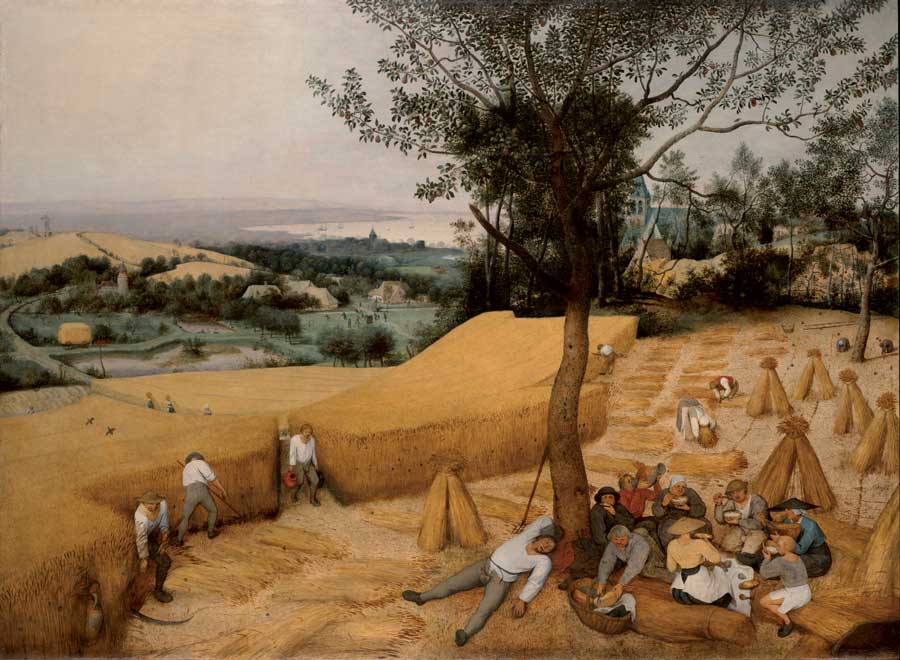How is technology transforming the agricultural sector? In what ways can farming practices become more sophisticated and productive? Can software development significantly enhance farming practices? These are some of the pressing questions that farmers, agriculturalists, technology innovators, and policy-makers grapple with in today’s fast-paced digital world.
According to a report published by McKinsey & Company, the agricultural sector is poised to undergo a major transformation enabled by data, analytics, and software solutions. However, the problem lies in the slow adoption of these advanced technologies by many farmers in the USA, as confirmed by USDA Economic Research Service. This challenges the modernization of farming practices, which can potentially solve issues of high labor costs, increased production demands, and environmental sustainability. There is a clear need for technology solutions that can empower farmers to optimize their operations, increase efficiency, and better manage resources.
In this article, you will gain insights into how software solutions are acting as catalysts in transforming farming practices. We will delve into cutting-edge technologies such as precision agriculture, big data analytics, and Internet of Things that are revolutionizing the agriculture industry. We will also discuss some pioneering companies that are at the forefront of this change and how they are using software solutions to streamline farming practices.
Moreover, the article will examine the strategies that are being implemented to resolve the problem of technology adoption in agriculture, with a focus on the United States. We will explore how these solutions are not only enhancing the profitability and sustainability of farming but also contributing significantly towards global food security.

Important Definitions in the Context of Software Development for Agriculture
Software Development: This refers to the process by which computer systems are designed, developed and maintained. It involves creation of software applications which run on computer hardware to perform specific tasks. For example, a farmer might use an application to keep track of crop yields.
Agriculture: This term encompasses the science or practice of farming, including cultivation of the soil for the growing of crops and the rearing of animals to provide food, wool, and other products.
Companies Modernizing Farming Practices: This term refers to businesses that use technology, specifically software development, to update traditional farming methods. This might include the use of a mobile app for monitoring crop growth or a web-based platform to manage livestock inventory. These technologies help farmers work more efficiently and make data-informed decisions.
Revolution on the Fields: Unveiling The Impact of Software Development in Modern Agriculture
Bridging the Gap: Integrating Technology into Farming
In the dawn of the digital age, it is no surprise that technology continues to penetrate different sectors of our lives, with the agriculture industry being no exception. The inception of software development has resulted in a total overhaul of farming practices, drastically improving efficiency, yield, and environmental sustainability. Farmers are now owning smart farms, equipped with advanced machinery operated through high-tech software. GPS technology has afforded precision farming, the use of sensors has facilitated real-time soil and crop monitoring, and the implementation of data analytics has enhanced decision-making processes based on actual data, eliminating reliance solely on experiential knowledge and intuition.
Unraveling the Core Benefits
Undoubtedly, the transformations brought about by integrating software development into agriculture are far-reaching with myriad benefits. One central boon is the increase in crop yields and farm productivity. Software-driven technology avails an insightful analysis of farm data, enabling farmers to make optimized decisions regarding planting and harvesting schedules, pest control, and soil management. This, in turn, translates to increased yields and improved farm efficiency.
Another coherence benefit is the potential for enhanced remote farming practices. Advanced software allows farmers to monitor, manage and operate various farm operations remotely, eliminating the need for physical, on-site surveillance. This heightens the farming efficiency, reduces labor costs, and ultimately, radically transforms the overall farming culture.
Moreover, the integration of software development into farming significantly contributes to environmental conservation efforts. It minimizes wastage by optimizing the use of resources such as water and fertilizers, thus lowering the ecological footprint.
- Precision farming through GPS technology which reduces waste and enhances productivity.
- Real-time monitoring of soil and crop health which enables timely interventions.
- Data analytics for better decision-making based on tangible insights.
- Remote control of farm practices which minimizes labor requirement.
- Sustainability through resource optimization which bolsters environmental conservation.
Recognizing the importance of ecosystem biodiversity, software development in agriculture sector also encourages sustainable farming practices. The evolutions in agri-tech have ushered in software that aides in maintaining optimal ground and surface water levels, preventing adverse effects on adjoining ecosystems due to over-exploitation or contamination. Furthermore, these technologies enable efficient animal management strategies, reducing the strain on the natural environment caused by overgrazing and invading non-native animal species. Overall, the synthesized use of software development in agriculture is planting the seeds of profound shifts in the farming landscape.
Bridging the Old and the New: A Deep Dive into How Companies are Employing Software Development to Modernize Farming
Questioning the Current State of Farming
Why is it that in every other industry we see major leaps forward in technology and systems, but when it’s farming, it seems as though we’re stuck in the rut of traditional practices? It’s an important question to ponder upon as agriculture is the backbone of our civilization. One major roadblock is that farming involves interactions with nature and living organisms which do not behave in predictable, mechanical ways. It’s a complex system that demands an intuitive understanding of various interlocking systems and processes. While traditional farming practices have worked well for centuries, the increasingly erratic weather phenomena and rising demands for food call for a more efficient and future-proof system. Software development has shown promise in revolutionizing many industries, and if properly leveraged, holds the keys to modernizing agriculture as well.
Unraveling the Complexity of the Challenge
Incorporating software development into agriculture comes with its fair share of hurdles. First, the ambiguous nature of farming processes makes it hard to visualize or model on digital platforms. Weather conditions, pests, and disease risks, to naming a few, are all variables that are challenging to predict and control. Apart from mapping the process and the variables, the sheer physicality of farming is another dimension that adds complexity. A software would have to account for practical constraints on the ground during the implementation of methods or introduction of machines. Collaboration across vast geographical distances adds one more layer to the problem. A software solution that caters to farmers across different regions should be flexible enough to comprehend the unique regional challenges and specific crop growth cycles.
The Tech-Savvy Farmer’s Toolkit: Notable practices
Despite the formidable challenges, there are shining examples of how software development has been leveraged to transform agricultural practices. A clear standout is John Deere, who has, in partnership with companies like Pessl Instruments, develop integrated tools for weather monitoring, irrigation, and other farming operations. They offer Machine Sync, a software that enables harvesters and tractors to communicate and coordinate activities in real-time, improving efficiency and minimizing waste. Another powerful tool is Agworld, a farm management software that integrates budgeting, planning, scheduling, and geospatial data. With the aid of this software, farmers can track their farm’s performance against their budget and plan, manage workflow, and make data-driven decisions. Similarly, ‘The Climate Corporation’s Climate FieldView’ software offers comprehensive field monitoring systems using satellite imaging and real-time weather data. The application of blockchain in agriculture, while still in nascent stages, is likely to lead to complete traceability of food, a feat currently unachievable by conventional methods.
From Plough to Code: A Comprehensive Analysis of the Role Software Development Companies are playing in Reforming Agricultural Practices
A New Era in Crop Cultivation?
Have you ever imagined the futuristic images of farming where efficient machinery operates flawlessly, making decisions autonomously, and data is seamlessly visualized for the farm owners? This might be closer to the reality than we suspect, thanks to the rapid technological advancements in the digital and software development sector. The traditional farming landscape, once dominated by manual labor and analog machinery, is undergoing a significant shift – A shift towards precision and optimization. Software developers are collaborating with farmers and agricultural experts to create smart farming solutions. The result? The advent of ‘agritech’, a merger where agriculture meets technology. This transformation continues to be driven by the digitization of farming practices, evolving the farmers’ role from sheer manual labor to acting as strategic decision-makers.
The Problematic Side Of The Coin
However, the technification of agriculture is not without challenges. The biggest hurdle is the gap in tech literacy among farmers, with many still reluctant to give up traditional farming practices in favor of digital innovation. Additionally, issues regarding data ownership, privacy, and security often surface when agricultural data is captured and transferred on the digital front. Moreover, the initial investment cost in cutting-edge technology often impedes smaller farmers who cannot bear the added expenses. Thus, the digital divide between large, technologically-capable farms and smaller, less tech-savvy operations can widen, fostering inequality within the agricultural sector. Therefore, the duty of transforming these challenges into opportunities falls on the software development industry.
Making Digital Acres A Reality
The good news is, several forward-thinking developers are delivering remarkable solutions to combat these adversities. Take ‘Farmers Edge’, a global leader in digital agriculture, for instance. They offer a comprehensive, turnkey system which includes satellite imagery, on-farm weather stations, and variable-rate technology to track, monitor, and analyze crop health in real time. For small-scale farmers, ‘Hello Tractor’ is an affordable app that connects them with tractor owners, easing their financial burden. To tackle data privacy issues, ‘Farmobile’ stands out as a platform that allows farmers to own, control, and monetize their farm data. Hence, it is evident that ‘smart farming’ is not merely a concept of the future. Instead, it is a reality shaping the agricultural practices of today, thanks to these pioneering software developers investing in agritech.
Conclusion
Could farming be the next industry to go digital? In conclusion, it’s clear that agriculture is set to be revolutionized by software development. Tech companies are empowering farmers with innovative software tools designed to enhance productivity, improve yield, and ensure sustainability. With these innovations, farmers can track their crop growth in real time, manage their resources more efficiently, and make data-driven decisions. Precision farming will soon become the norm, reducing the inefficiencies and environmental effects associated with traditional farming practices.
In order to stay abreast of these evolving technologies that are transforming agriculture, we encourage you to continuously follow this blog. We dedicate significant resources to research and analysis to provide you with the latest updates on developments in agri-tech. From exploring new software tools to providing in-depth reviews of platforms, we aim to be your trusted source of information. Our goal is simple: To keep you informed about the intersection of technology and farmscape, so that you can better understand how these innovations are creating more sustainable and productive farming practices.
Please be anticipative of our future posts as more exciting revelations are on the horizon! The modern, digitally-driven world is constantly evolving, and with it, so are farming practices. Therefore, from time to time, We’ll drop new content that dives deeper into the intricacies of software development in agriculture, shining a light on the companies that are leading this revolution. So, let’s keep exploring this exciting world together, and broaden our understanding of how technology can transform one of civilization’s oldest practices – farming.
F.A.Q.
1. What types of software are being developed for modern farming practices?
A range of software is currently being designed to modernize farming practices, including agricultural management systems, crop monitoring applications, and weather forecasting tools. These tools can help farmers streamline tasks, optimize resources, and make data-driven decisions.
2. How are these software helping in the modernization of farming practices?
These software applications are enhancing productivity, sustainability, and efficiency by providing solutions for irrigation management, crop diseases detection, yield prediction, and soil management. They are also helping farmers to automate routine tasks, thus freeing them for other essential duties.
3. Can you name some companies that are modernizing farming practices through software development?
Several companies are leading the way in agricultural software development, including Granular, Farmlogs, and Agriwebb. These companies offer innovative solutions ranging from farm management software, crop health monitoring, to livestock tracking.
4. How is farming software improving sustainability in agriculture?
Software solutions in agriculture are promoting sustainability by optimizing use of resources like water and fertilizers, reducing the need for pesticides by accurately predicting disease outbreaks, and improving soil health management. They are also helping farmers shift towards precision farming, thereby reducing waste and increasing yield efficiency.
5. What is the future of software development in agriculture?
The future of software development in agriculture is promising, with exciting advancements like machine learning, artificial intelligence (AI), and Internet of Things (IoT) being integrated into farming practices. These technologies can further automate tasks, enhance decision-making through predictive analytics, and promote a more responsive and adaptable agriculture system.


